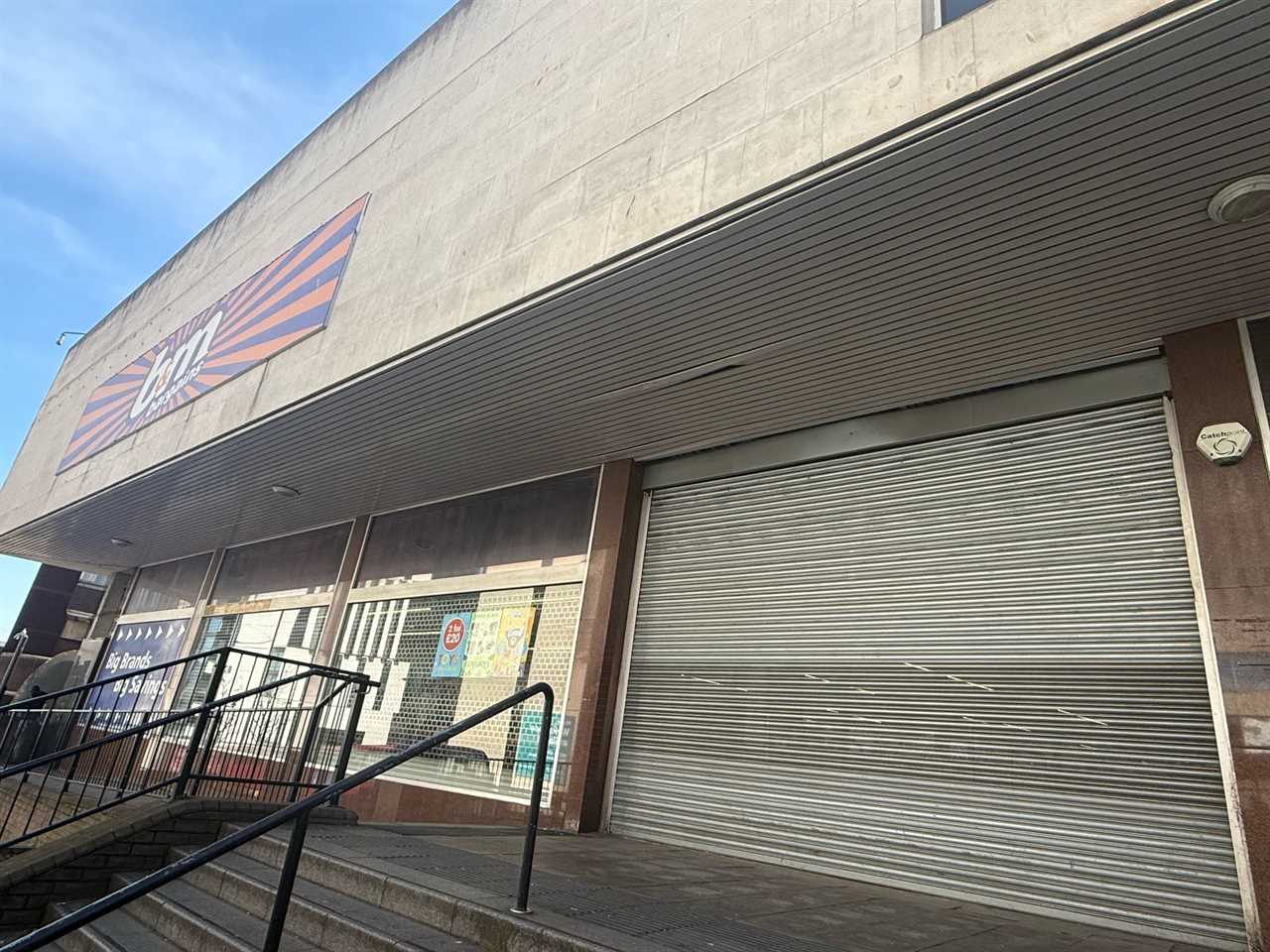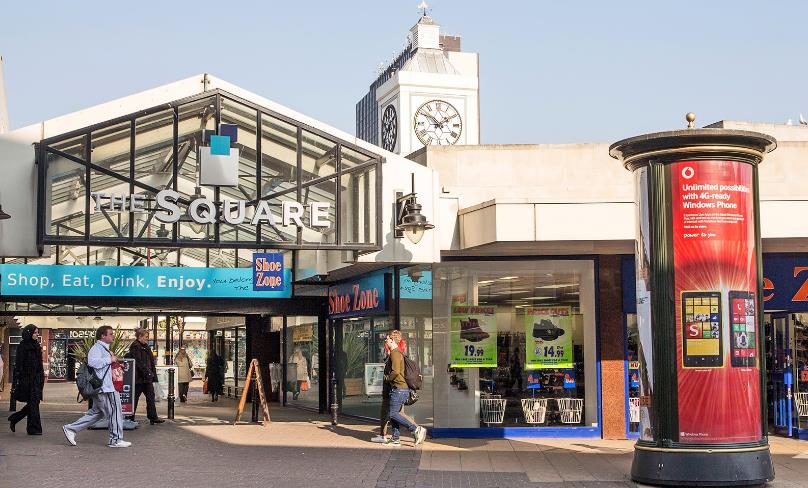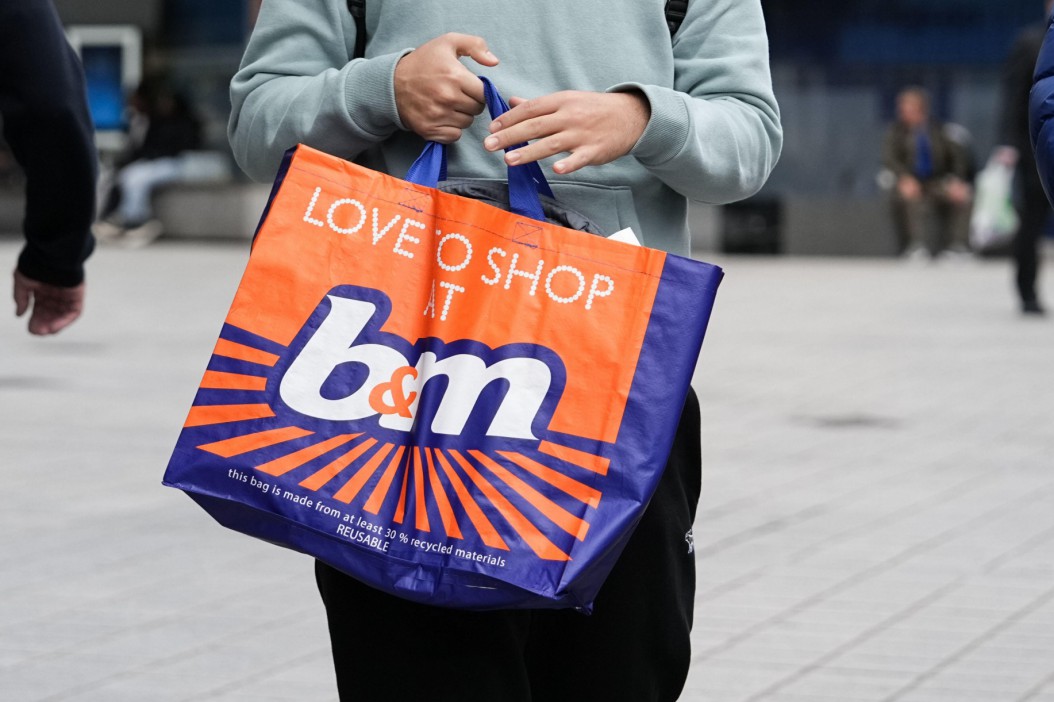
Oh my god. I was literally walking past The Square last week and everything seemed normal. Now it's just... gone. Another one bites the dust in Birmingham's retail apocalypse, and this time it's B&M that's fallen victim after one of their busiest locations went dark following The Square shopping centre's abrupt "indefinite" closure.
I've lived in Birmingham for 12 years and The Square has always been there - not exactly thriving, but surviving. Until now.
The Day Everything Went to Hell
Picture this: You're browsing through discounted Easter chocolates or whatever, and suddenly an announcement tells you to leave. Now. That's exactly what happened to shoppers at The Square back in March. My cousin was there buying garden stuff and said everyone was looking around confused, like "is this for real?"
Staff got some vague letter telling them to wait for updates. Updates that never really came.

Later we all found out there was a "high fire safety risk" - which sounds like corporate-speak for "this place could burn down any minute." Lovely.
What the hell happened?
Hammerson (the developer who probably wishes they never touched this place) released this statement that basically translates to "we're screwed": "We have been actively working to establish the nature of the extent of teh remedial works required in order to reduce the risk. However, it is clear that the improvements and mitigations required for safe reopening are materially beyond what is reasonably practicable to implement."
Translation: The electrical system is so messed up that fixing it would require shutting everything down for ages, and they've decided it's just not worth it.
So they're closing it. Indefinitely. Which we all know means forever.

B&M: Last One Standing (Until Now)
B&M has actually been one of the few success stories in retail lately. Back in 2023, they swooped in and bought 51 Wilko stores when that chain collapsed - I remember because my sister lost her job at Wilko and ended up working at one of the converted B&Ms.
They've been expanding while everyone else contracts. Their baby products start at 69p, for crying out loud. And their garden range? I spent £87 there last summer and completely transformed my tiny patio.
But even they couldn't survive this disaster.
Retail Bloodbath Continues
It's been brutal out there.
Brexit. Covid. That October budget that made everyone clutch their wallets in terror. It's all creating a perfect storm that's decimating the high street.
WHSmith is closing 6 stores this month alone. Aldi and Sports Direct are each axing one. And Home Store + More? Gone completely. Their "everything must go" sale was depressing - I went in hoping for bargains and left feeling like I was picking over a corpse.
Meanwhile, Rachel Reeves is out there defending her economic record while shops are dropping like flies. She keeps insisting the October Budget and Spring Statement were "necessary to stabilize the economy." Tell that to the people who just lost their jobs at B&M, Rachel.
Remember When Shopping Was Actually Fun?
I took my 7-year-old nephew shopping last weekend and he asked why so many shops had their shutters down. How do you explain to a kid that the entire concept of physical retail might not exist by the time he's grown up?
At least Reeves raised the National Living Wage by 6.7%. That's supposed to give three million Brits a £1,400 pay rise. Great news... if you still have a job.
For the B&M workers at The Square, that's cold comfort.
Frequently Asked Questions
What is a budget deficit?
A budget deficit occurs when a government's expenditures exceed its revenues over a specific period, usually a fiscal year. This can lead to increased borrowing and national debt if not addressed through spending cuts or revenue increases.
What is the definition of money?
Money is a medium of exchange that facilitates transactions for goods and services. It serves as a unit of account, a store of value, and a standard of deferred payment, allowing individuals to compare the value of diverse products and services.
What is the difference between saving and investing?
Saving typically involves setting aside money in a secure account for short-term needs or emergencies, while investing involves using money to purchase assets like stocks or real estate with the expectation of generating a return over the long term. Investing carries higher risks but offers the potential for greater rewards.
What is the importance of financial literacy?
Financial literacy is essential for making informed decisions about budgeting, saving, investing, and managing debt. It empowers individuals to understand financial concepts, evaluate risks, and navigate complex financial products, leading to better financial stability and long-term wealth building.
What are the main functions of money?
The primary functions of money are as a medium of exchange, facilitating trade; a unit of account, which provides a standard measure of value; a store of value, allowing individuals to save and transfer purchasing power over time; and a standard of deferred payment, enabling credit transactions.
What are the benefits of having an emergency fund?
An emergency fund provides financial security by offering a safety net for unexpected expenses, such as medical emergencies or job loss. It helps prevent debt accumulation, reduces stress, and allows for better financial planning, ensuring that individuals can navigate unforeseen circumstances without significant hardship.
What is the role of central banks in the economy?
Central banks manage a nation's currency, money supply, and interest rates. They implement monetary policy to control inflation, stabilize the currency, and foster economic growth. They also serve as lenders of last resort to the banking system during financial crises.
Statistics
- A report by Bankrate indicated that only 29% of Americans have a written financial plan.
- As of 2021, the average American household had approximately $8,400 in credit card debt, according to Experian.
- The average cost of raising a child in the U.S. is estimated to be around $233,610, according to the U.S. Department of Agriculture.
- According to the World Bank, around 1.7 billion adults worldwide remain unbanked, lacking access to basic financial services.
- As of 2021, the average student loan debt for recent graduates was approximately $30,000, according to the Federal Reserve.
- According to the Federal Reserve, approximately 39% of Americans do not have enough savings to cover a $400 emergency expense.
- According to the Bureau of Labor Statistics, the average American spends about $1,500 per year on coffee.
- A study by the National Endowment for Financial Education found that 60% of Americans do not have a budget.
External Links
How To
How To Choose the Right Insurance Policies
Choosing the right insurance policies is crucial for protecting your assets and financial well-being. Start by assessing your needs based on your lifestyle, dependents, and financial situation. Research various types of insurance, such as health, auto, home, and life insurance, to understand the coverage options available. Compare quotes from multiple insurance providers to ensure you are getting the best rates and coverage. Read reviews and seek recommendations to gauge the reliability of the insurance companies. Finally, regularly review your policies to ensure they evolve with your life changes, adjusting coverage as needed for optimal protection.
Did you miss our previous article...
https://hellofaread.com/money/ice-cream-heaven-at-99p-farmfoods-drops-mega-deals-just-as-uk-bakes-in-freakish-april-heat
 PoliticsRoyaltySoap OperaGamingMoneyPrivacy PolicyTerms And Conditions
PoliticsRoyaltySoap OperaGamingMoneyPrivacy PolicyTerms And Conditions
